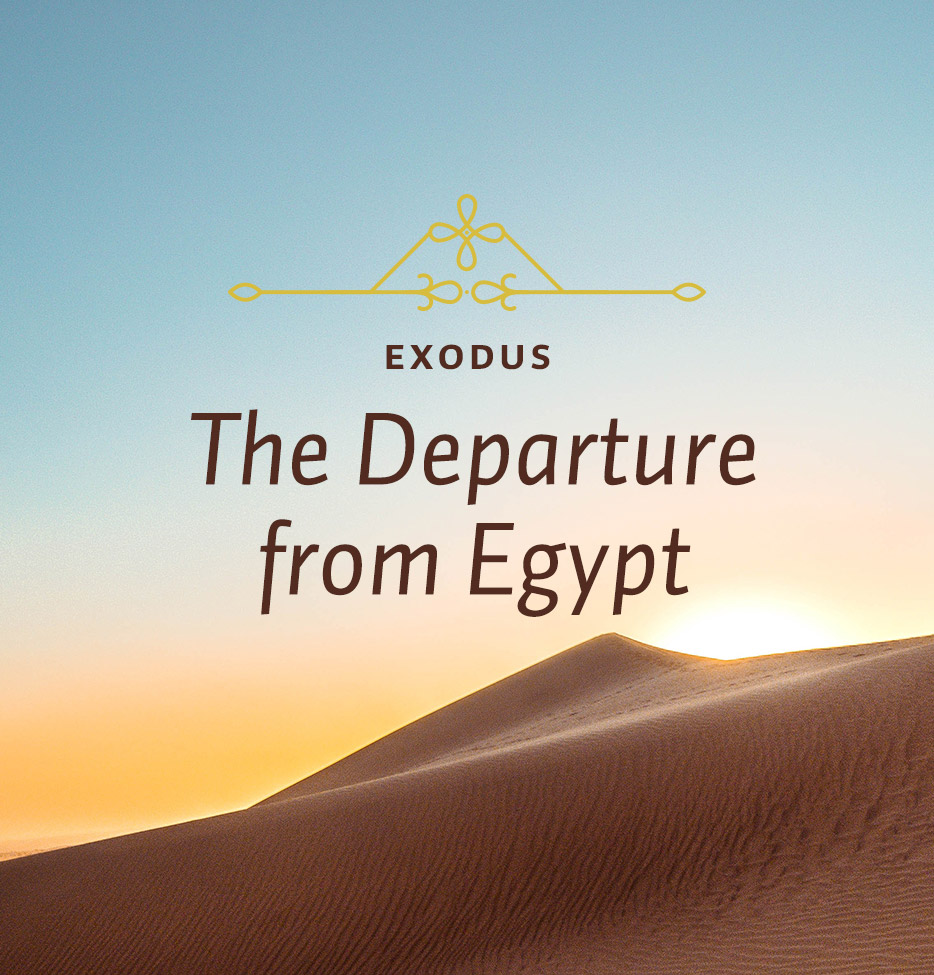Now we come to the tenth plague itself. We’re told about the death of the firstborn at the end of chapter 12, in only two verses (vv. 29-30). They tell us that there was loud wailing in Egypt, and that there was not a house without someone dead. That is a very sober thing.
We need to pause and think about that. Think what it would have been like for the Jewish families who sat down to dinner that evening, having very carefully followed all the instructions that had come to them from God through Moses. I imagine there would have been a very suspenseful silence as they began to eat the meal in the late hours of the day in the dark, having put the blood on the doorposts of their houses, waiting to see what would happen.
Suddenly the wails would begin to emerge from every part of the country. They would grow into a great, cacophonous sound. And while that was going on the Jewish families would have been sitting in utter silence, terrified, trembling, waiting anxiously with hearts beating quickly for the hour of their departure.
Where was the power of Pharaoh? Pharaoh was the incarnate god. He was the perfect god, Ra on earth. Where was his power? He had no power at all, because even his own son, the next Pharaoh, the next incarnation of the sun, was dead. And what about the other gods and goddesses? Where was Isis, the symbol of fecundity? Where was Min, the god of procreation and reproduction? Where was Hathor, the deity that attended childbirth? Some of them were also gods of the animals, but even the firstborn of the animals had died. Hathor was goddess of the cow, but she couldn’t keep her cows alive, let alone protect the Egyptians! You see in a very clear way, at the climax of the plagues, everybody understood that the gods and goddesses of the Egyptians were absolutely nothing at all.
While it was still dark, just before dawn, the call went out. All the Israelites came out of their houses, gathered up all their possessions, including their flocks, and this great mass of people began to make its way out of the land. You can’t think about that without finding your own heart and mind stirred as you enter into the deliverance of these people on the day of their birth as a nation.
A couple of details deserve our consideration. One is that in older versions of the Bible, it said that the Jewish people “borrowed” articles of silver and gold and clothing from the Egyptians. And that suggested to some people that they were crooked in doing it, because they had no intention of ever giving it back. That unfortunately is based on a wrong translation. The Hebrew word is shaal, and in almost every other place in the Old Testament it’s translated “ask,” not “borrow.” So they asked for these things from the Egyptians, and that would be proper to do. Anybody starting out on a journey in an oriental culture would have the right to do that, and it would be the proper thing to give them gifts. But if you say to yourself, “Well these were unusual circumstances. How, in a situation like this, could the Egyptians possibly willingly have given gifts to the people?” We are told that the Lord gave the Israelites favor in their eyes. So in this way the people went out with gold and silver and clothing and possessions. This is what God had told Abraham would happen, centuries before. He said in Genesis 15:14, “They will come out with great possessions.”
The second detail that has been a problem to some is the biblical mention that 600,000 men left Egypt (Ex. 12:37). And that’s only the men, in addition to the women and the children. We’re told that a great mixed multitude went out, that is, people who weren’t Jews but slaves from other backgrounds who saw this as the time of their deliverance. You can’t put that together and suppose that there were less than two million people, probably more than that. That is an enormous amount of people, and some scholars have said that it would be impossible to handle that many people and have the things happen that occur in the account. For example, they said that it would take too long for them to get across the Red Sea, not to mention being provided for in the wilderness for all those years, which is what the story says.
Some scholars have tried to deal with that by saying that the word “thousand” only refers to a family unit. Thus, it’s talking about 600 family units. If that’s the case, you have maybe 2,500 fighting men and between twelve thousand and twenty-five thousand individuals. The only problem with that is that if you carry that over into other passages—in Joshua, for example, when thousands fight—and you reduce that to family units, you don’t have enough people for the wars. So you can’t have it both ways, reducing the numbers in one story and increasing them in another. The Bible is clear that a great multitude went out because of the mighty work of God in bringing those plagues upon Egypt, striking down the firstborn, dividing the Red Sea, and taking the people across.
This event teaches us great spiritual lessons. The first is that Israel was also guilty before God. If the blood had not been spread upon the doorposts of the Israelite houses, the firstborn in those houses would have died, too. It wasn’t a question of them being a better people or a holy people or a special people in any sense that had to do with anything in them. They were sinners as well. If they hadn’t done what God had said, they would have perished.






